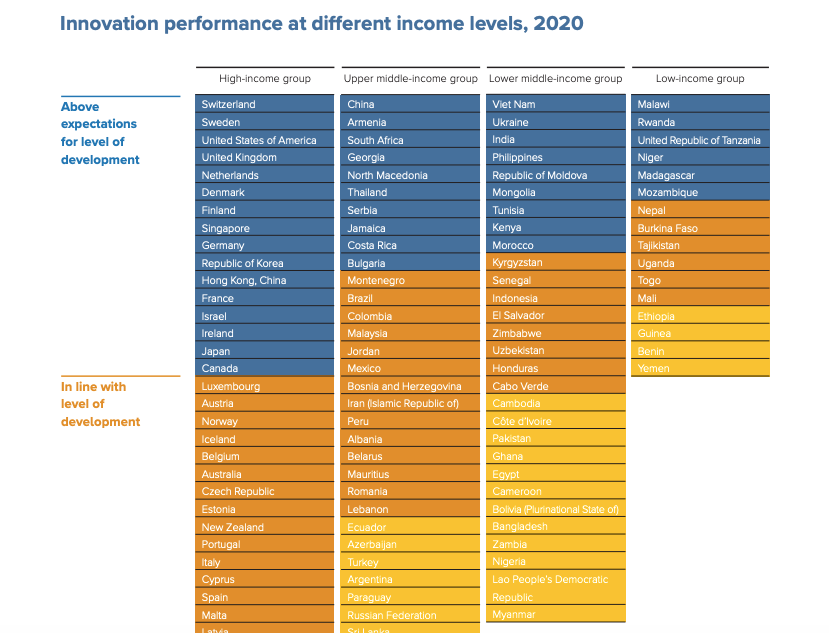South Africa improves its ranking on the Global Innovation Index 2020
Jumping four places, South Africa has improved its ranking to 60th on the recently published Global Innovation Index.
Jumping four places, South Africa has improved its ranking to 60th on the recently published Global Innovation Index.
The Global Innovation Index assesses a country's capacity for innovation by determining the relative worth of its institutions, human capital & research, infrastructure, market sophistication, business sophistication, knowledge and tech outputs as well as its creative outputs.

South Africa is the 2nd best innovator in the region behind Mauritius, who ranking #52 in the world.

Taking from the report:
'With growing attention on innovation as the way to build a
sustainable and inclusive future, now is a particularly relevant time
for this year’s special theme: Who Will Finance Innovation?
As long as innovation has existed, a central challenge facing
innovators worldwide is the mobilization of stable and accessible
financing mechanisms. Financing affects all stages of an innovation
cycle, from ideation to commercialization, expansion, and,
eventually, long-term business sustainability.
Even before the crisis, a range of new actors, such as sovereign
wealth funds, and not-for-profit organizations, has been supporting
innovation. Innovative mechanisms, such as corporate venturing,
intellectual property (IP) marketplaces, crowdfunding, and fintech
solutions, were present before the crisis and will not vanish. At the
same time, public support schemes remain essential vehicles of
innovation financing.
To conclude, every crisis brings opportunities and room for
creative disruption. One side effect of the current crisis has been
to stimulate interest in innovative solutions for health, naturally,
but also for areas such as remote work, distance education,
e-commerce, and mobility solutions. Unleashing these positive
forces may well support societal goals, including reducing or
reversing long-term climate change.'
What the global pandemic has therefore offered innovators is more than enough ammunition to justify an increased focus on finding new solutions to the global challenges that we face.
Old ways of thinking and doing will not be good enough - what is required is creative new approaches as to how we build a more sustainable, inclusive, equitable future. Innovation has therefore never been more important or more accessible.
My key question is 'How can South Africa actively develop more of a collective innovation mindset to better take advantage of this opportunity?"
'Today, new categories of innovators create new categories of solutions for
new categories of customers, citizens, and patients.
Industry Renaissance is emerging worldwide with new ways of inventing, learning, producing, healing, and trading.
It comes with a new logic for financing the economy and supporting innovation. The large majority of investments are now intangible, in the form of intellectual property, data, and knowledge.
Even tangible physical investments, such as bridges, buildings, factories, and hospitals, come with their virtual twins, opening new possibilities for the operations of these assets through their full lifecycle. Investments are shaping the unknown because the future is not just undefined: it has to become possible, we need to create it, and virtual reality is the key to it. The new assets for the 21st century are virtual ones because they connect the dots between domains and usages. Improving global health requires a holistic approach, which includes cities, food, and education.
Developing global wealth in a sustainable manner involves new ways to connect data and territories. Dealing with ecological challenges requires an all-inclusive view of the balance between what we take (footprint) and what we give (handprint)
to our planet.'
You can download a copy of the full Global Innovation Index 2020 report here.

